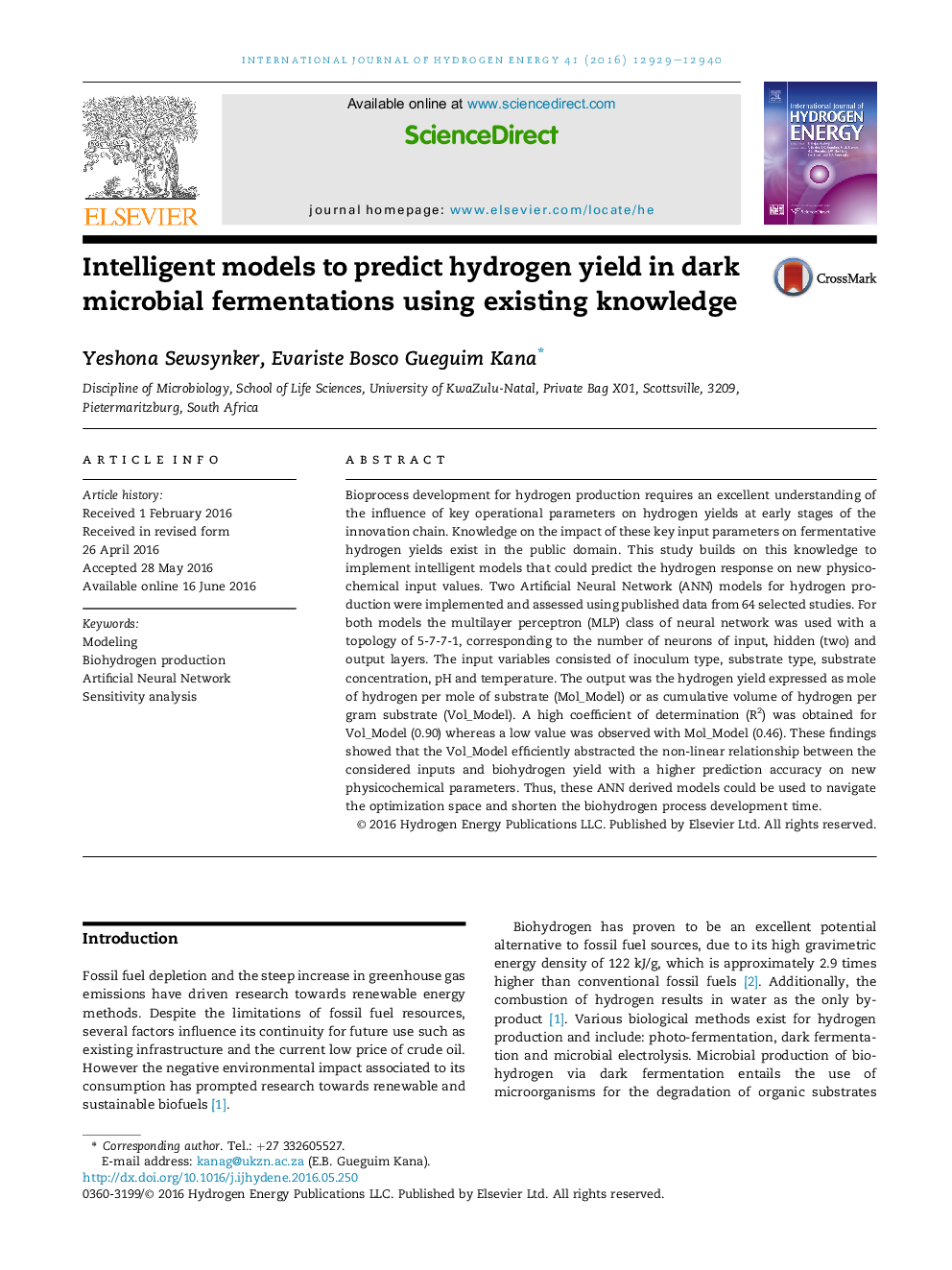| Article ID | Journal | Published Year | Pages | File Type |
|---|---|---|---|---|
| 1268206 | International Journal of Hydrogen Energy | 2016 | 12 Pages |
•Artificial Neural Networks (ANN) was used to develop intelligent models for hydrogen yield prediction..•Model derived from volume expression has a higher predictive accuracy over mole derived model.•Volume based ANN model predicts hydrogen yield on new input values with great accuracy.
Bioprocess development for hydrogen production requires an excellent understanding of the influence of key operational parameters on hydrogen yields at early stages of the innovation chain. Knowledge on the impact of these key input parameters on fermentative hydrogen yields exist in the public domain. This study builds on this knowledge to implement intelligent models that could predict the hydrogen response on new physicochemical input values. Two Artificial Neural Network (ANN) models for hydrogen production were implemented and assessed using published data from 64 selected studies. For both models the multilayer perceptron (MLP) class of neural network was used with a topology of 5-7-7-1, corresponding to the number of neurons of input, hidden (two) and output layers. The input variables consisted of inoculum type, substrate type, substrate concentration, pH and temperature. The output was the hydrogen yield expressed as mole of hydrogen per mole of substrate (Mol_Model) or as cumulative volume of hydrogen per gram substrate (Vol_Model). A high coefficient of determination (R2) was obtained for Vol_Model (0.90) whereas a low value was observed with Mol_Model (0.46). These findings showed that the Vol_Model efficiently abstracted the non-linear relationship between the considered inputs and biohydrogen yield with a higher prediction accuracy on new physicochemical parameters. Thus, these ANN derived models could be used to navigate the optimization space and shorten the biohydrogen process development time.
